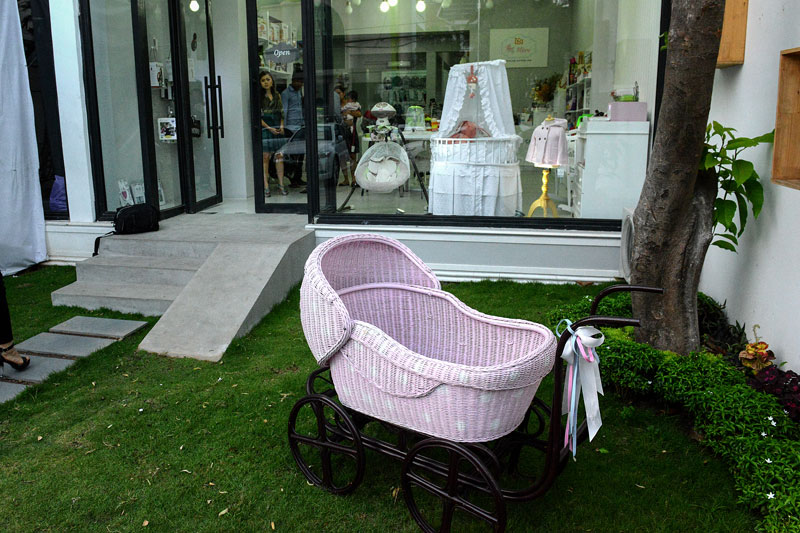“I just paid $200 for a pillow and the bottle sterilizer,” said expectant father Sin Phally as he walked out of one of Phnom Penh’s newest high-end baby stores, Baby Care, in Daun Penh district last week.
With his first child due this month, and scrambling to find the last minute items many parents view as essentials, the 30-year-old said that he was surprised to find such a “nice” shop stocking so many imported products.

“The living standard is higher and people can afford to pay more for their babies,” said Mr. Phally, who recently returned to his native Cambodia after working in the U.S. for five years.
In recent years, baby product stores have popped up in Phnom Penh, mostly in the city center, offering an array of specialized—and expensive—products aimed at infants and toddlers.
Samath Mey, 35, a government official who also works for an insurance company, suggested that these shops are responding to an evolution in the way Cambodians take care of their newborns.
“The old generation had different ways [of taking care of their babies]. They used traditional treatment. We use technology,” Mr. Mey said as he walked out of the Baby Care store located on Street 51, baby formula in hand.
Money, he added, is not a problem for many new Cambodian parents, who are more concerned with the quality of the products on offer.
Breast pumps ($249), baby bottle sterilizers ($120), eco-friendly swimming wear ($26), teething necklaces ($39.50) and cribs (from $269 to $480) are just some of the products available at Mere, a store that opened less than two months ago, also in Daun Penh.
According to co-owner Ung Linda, this boutique attracts customers who are happy to pay more for branded goods that she claims are safer than cheaper alternatives.
“Safe products is a big issue to them because if they purchase products with no brand from China, it costs [for example] $100,” she said. “So why not add another $100 for a well-known and safe product?”
Ms. Linda said her customers—typically upper-middle class and wealthy Cambodians—were generally in their 20s and 30s, members of what she sees as a better-informed, younger generation.
Asked if the market for her products was growing, Ms. Linda said: “Yes, I think so, because now many Cambodians who study abroad are coming back. Many have traveled around and have seen relatives overseas use similar products,” she said.
“They also read more. Anything they are not sure about, they Google…. In the old days when you don’t know English you can’t do so much research.”
Ian Ramage, director of Domrei Research and Consulting, said the emergence of higher-end baby care stores was due not only to a burgeoning middle and upper class—but also to a more general influx of luxury goods into the Cambodian market.
“It’s not so much about having more rich people or the rich getting richer—there has always been a class of people in Cambodia with more money than they know what to do with. But I think the luxury market has opened up,” he said.
According to Mr. Ramage, opening a business has become easier in Cambodia in the past two years, sparking increased interest from Japanese, Chinese and European companies.
“They were worried about the investment climate and copyright protection, but these things have gotten a lot clearer,” he said. “Cambodians have implemented trademark protection, they have made opening up a business more transparent.”
Combi, a Japanese firm specializing in high-end strollers, car seats and baby carriers, has opened three stores in Phnom Penh since January 2014. General manager Karen Castaneda said it was a “perfect” time to invest.